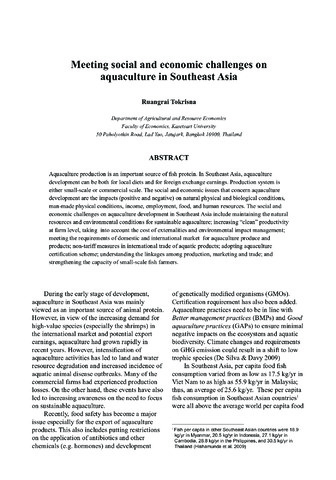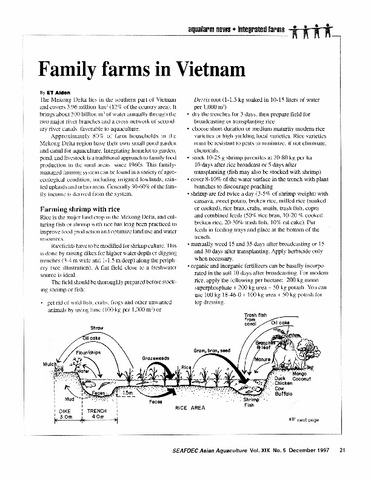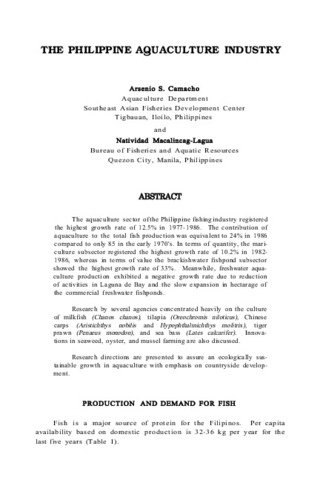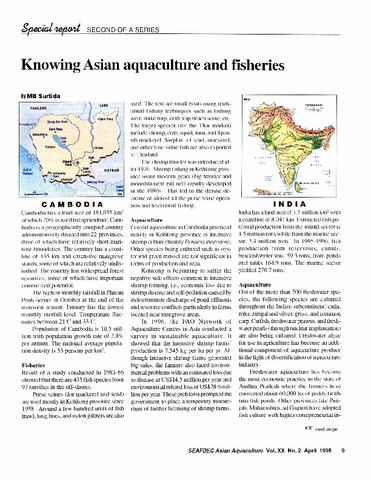Meeting social and economic challenges on aquaculture in Southeast Asia.
Share
Abstract
Aquaculture production is an important source of fish protein. In Southeast Asia, aquaculture development can be both for local diets and for foreign exchange earnings. Production system is either small-scale or commercial scale. The social and economic issues that concern aquaculture development are the impacts (positive and negative) on natural physical and biological conditions, man-made physical conditions, income, employment, food, and human resources. The social and economic challenges on aquaculture development in Southeast Asia include maintaining the natural resources and environmental conditions for sustainable aquaculture; increasing "clean" productivity at farm level, taking into account the cost of externalities and environmental impact management; meeting the requirements of domestic and international market for aquaculture produce and products; non-tariff measures in international trade of aquatic products; adopting aquaculture certification scheme; understanding the linkages among production, marketing and trade; and strengthening the capacity of small-scale fish farmers.
Suggested Citation
Tokrisna, R. (2011). Meeting social and economic challenges on aquaculture in Southeast Asia. In B. O. Acosta, R. M. Coloso, E. G. T. de Jesus-Ayson, & J. D. Toledo (Eds.), Sustainable aquaculture development for food security in Southeast Asia towards 2020. Proceedings of the Regional Technical Consultation on Sustainable Aquaculture Development in Southeast Asia Towards 2020 (pp. 45-51). Tigbauan, Iloilo, Philippines: SEAFDEC Aquaculture Department.
Subject
Related items
Showing items related by title, author, creator and subject.
-
Family farms in Vietnam
Aldon, Eva T. (Aquaculture Department, Southeast Asian Fisheries Development Center, 1997) -
The Philippine aquaculture industry
Camacho, Arsenio S.; Macalincag-Lagua, Natividad (Aquaculture Department, Southeast Asian Fisheries Development Center, 1988)The aquaculture sector of the Philippine fishing industry registered the highest growth rate of 12.5% in 1977-1986. The contribution of aquaculture to the total fish production was equivalent to 24% in 1986 compared to ... -
Knowing Asian aquaculture and fisheries
Surtida, Marilyn B. (Aquaculture Department, Southeast Asian Fisheries Development Center, 1998-04)This article is the second of four parts.




